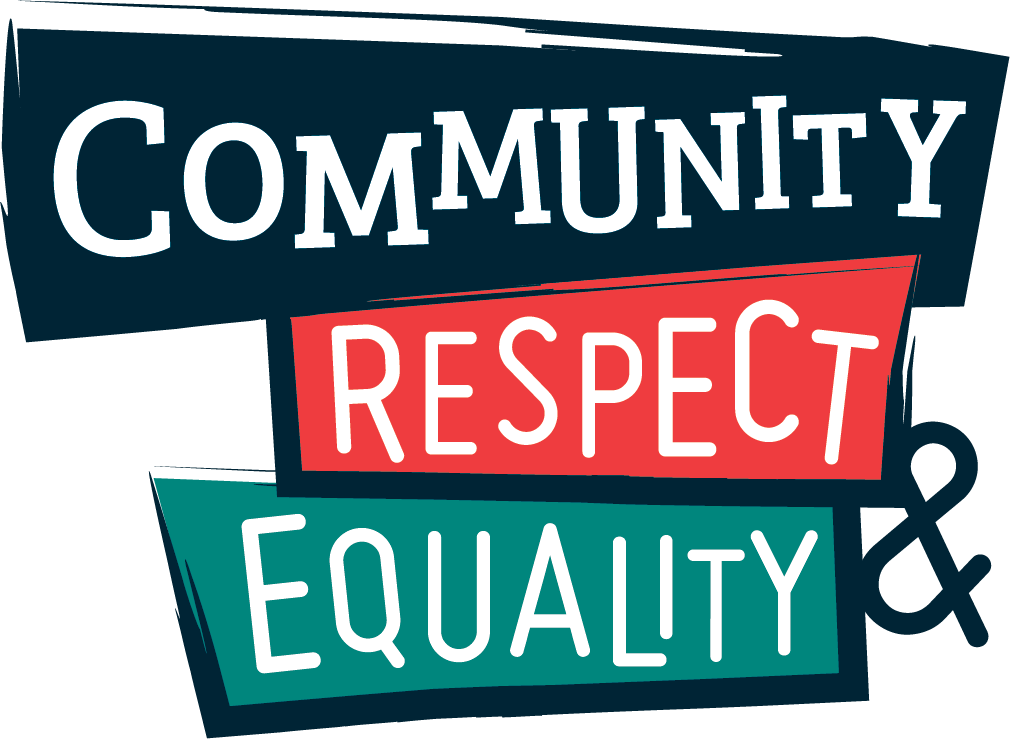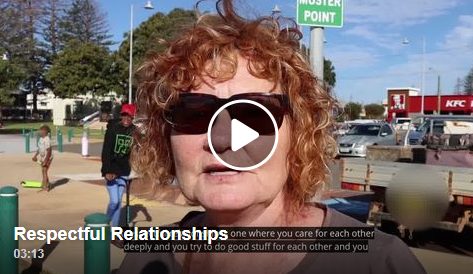Respectful relationships create meaning within our lives and provide us with a network of support. They are also the foundation for creating a community that is safe and respectful for everyone, with family violence occurring less in communities where women and men are equally respected¹.
We recently asked CRE Facebook followers, “what things should we see in respectful relationships,” read what they had to say below:
“Treating each other as equals with kindness and consideration” – Julia Frances
“Placing the needs, rights and freedoms of your partner equal to your own” – Sandra A Kennedy
“Honesty, sharing, trust, equality” – Kylie Hutchinson
You may have also seen as at the RUAH Mental Health Community Concert. Where we were able to speak with over thirty community members about the CRE project and the connection between respectful relationships and preventing family violence. It was great to be able to have these conversations, which will have prompted further discussions among their family and friends, meaning the message will be reaching more than just those that we spoke with. We were also to capture some of their thoughts in this video, asking “what does a respectful relationship look like to you?” – Check it out on the CRE Facebook page, and don’t forget to comment, share and like the page while you’re there!
With 1 in 4 young men believing that girls like guys to be in charge of the relationship², it is important that we role model and communicate what respectful relationships look like with young people, but also within our workplaces. 94% of employees agree that employers should take a leadership role in educating their workplace about respectful relationships between men and women³.
Employers could do this by communicating workplace policies that outline behaviours and attitudes that are not tolerated or by promoting the CRE Agreement and its agreed values and codes of behaviour that are expected and encouraged within the organisation. Similar to young people, respectful relationships should be role modelled among all levels of the organisation. If employees are expected and supported to have respectful relationships at work, it is more likely they will be able to reflect this in their homes and within our community.
To learn more about what strategies your workplace can do to prevent family violence, OurWATCh has developed a series of short videos which can be seen here.
_______________________________________________________________________
[1] Heise, L & Kotsadam, A. (2015). Cross-national and multi-level correlates of partner violence: An analysis of data from population-based surveys, Lancet Global Health 3(6), 332–340
[2] Our Watch: Research for The Line campaign 2015
[3] Pennay, D. & Powell, A. (2012). The role of bystander knowledge, attitudes & behaviours in preventing violence against women. Melbourne: The Social Research Centre. Retrieved from: http://bit. ly/1osZjYt

